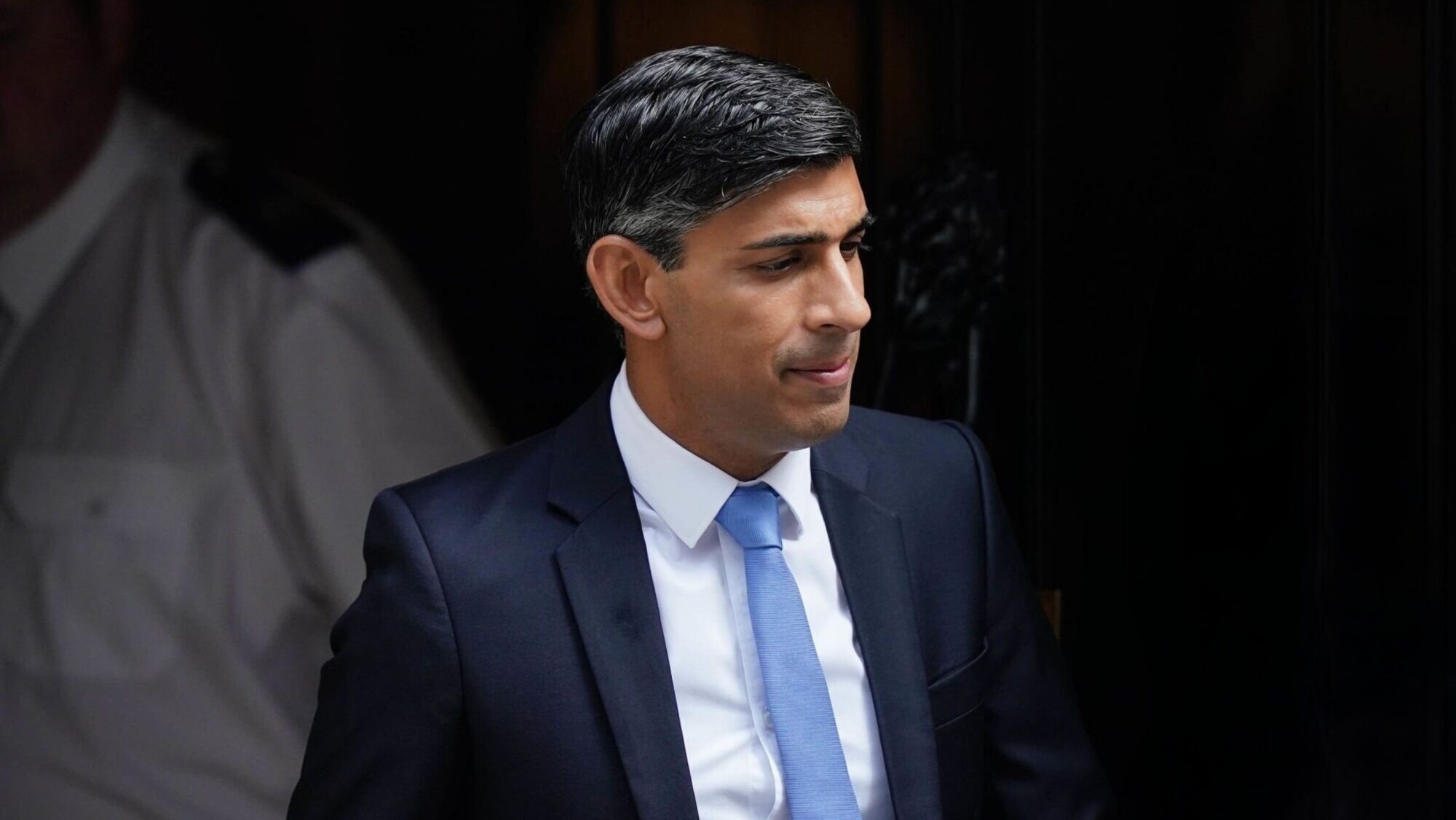
Rishi Sunak
Photo: Muhammad Aamir Sumsum / Shutterstock.com
A new deal to restore Northern Ireland’s power-sharing government has prompted fears of Brexit betrayal and a weaker United Kingdom.
Northern Ireland’s Democratic Unionist Party (DUP) began its boycott of power-sharing almost exactly two years ago in protest against post-Brexit customs checks on goods arriving from Britain. Prime Minister Rishi Sunak later signed an agreement with the EU to reduce the number of checks, but the DUP was not convinced that this “cut the mustard.”
Nationalist and unionist politicians are obliged to share power under the 1998 Good Friday peace agreement which ended decades of sectarian violence known as “The Troubles.” If one side refuses to participate in Northern Ireland’s governance, then the province cannot have its own government and is instead ruled directly by the UK government.
Northern Ireland had been without a government since the DUP’s Paul Given resigned as First Minister in February 2022 in protest at post-Brexit checks on goods arriving from Britain.
In the subsequent elections to the Northern Ireland Assembly in May that year, the DUP lost three seats and was overtaken by the nationalist Sinn Féin. That result means that Michelle O’Neill became Northern Ireland’s first ever nationalist first minister upon the restoration of power-sharing over the weekend.
As a unionist party, the DUP is defined by its commitment to maintaining Great Britain and Northern Ireland as a single state, making a customs border between one part of the UK and another into an existential threat.
This meant the unionists refused to return to government—and, in turn, that Northern Ireland could not have a government at all.
That was until it agreed to a new deal offered by Sunak. This promises to eliminate “unnecessary” customs checks between Britain and Northern Ireland. Officials say their only “caveat” to this rule is their commitment to tackling criminal activity, though some British products shipped to Northern Ireland will still be the subject of a full customs process. They will also establish a new trade body, “Intertrade UK,” which will set out to “promote trade within the UK.”
In its broadest terms, the deal promises the introduction of legislation which will “copper-fasten Northern Ireland’s political and constitutional place in the Union,” alongside a £3.3 billion (€3.86 billion) financial package.
While top DUP officials debated whether to agree to these terms, protesters gathered outside their offices urging against a “sellout.” They worry that the deal will weaken Northern Ireland’s position in the United Kingdom, thus weakening the union as a whole.
Indeed, there is a sense that the deal was agreed to at least in part due to a sense of fatigue over post-Brexit rules. Reuters quoted one DUP lawmaker, Sammy Wilson, complaining that there will still be “EU-manned border posts” in Northern Ireland, afterwards reporting: “But he stopped short of criticising his party leader.”
In London, too, politicians from the Conservative Party said it would be a “disaster” if the UK gave up on its efforts to take back control from Brussels. One Tory MP told The Daily Telegraph:
Northern Ireland is part of the United Kingdom and they are still subject to EU laws. So there’s that axe still very much grinding away, which we must get rid of.
Former minister Sir Edward Leigh also told Parliament in a debate on Thursday: “What worries me about all this is not the deal as such, but I’m a Brexiteer and I want us to have a dynamic and deregulated economy. What happens when we try and diverge from EU laws?” He is doubtful that such moves will be signed off by leftwing civil servants in London—those who believe Britain should never have split from Brussels in the first place.
MPs did give the measures their backing, but the EU will itself want to make sure it agrees with these new standards. It is understood that it will find these “acceptable.” Perhaps that is a part of the problem for pro-Brexit campaigners, who feel the 2016 referendum mandate has been betrayed.
